Ah, a new puppy! In my opinion, there is nothing cuter! With the surge of the Covid-19  Virus and people choosing to stay at home, adopting or buying a brand new puppy is not uncommon. Getting them off to a good start is essential, and one of the most critical steps in doing this is the selection of the best dry puppy food available.
Virus and people choosing to stay at home, adopting or buying a brand new puppy is not uncommon. Getting them off to a good start is essential, and one of the most critical steps in doing this is the selection of the best dry puppy food available.
But with all of the dog food brands on the market today, choosing the best one is no small task. In this article, you will learn the importance of a nutritional puppy food, what to look for, and a number of brands that provide a healthy, wholesome puppy food to the latest edition to the family.
9. Say Hello To Your Local Veterinarian

Have you just rescued or purchased a new puppy? If so, I think it would be wise to make an appointment with your local veterinarian and have your pup examined. This would also be a great time to ask your vet which type of puppy food would meet their needs.
If your vet recommends a specific type or brand of food, don’t be afraid to ask questions. Why do you recommend this product? What about the ingredients? Are you receiving some sort of commission or ‘kickback’ from products you sell? Is this the best dry puppy food?
These may sound like tough questions to ask someone who has made veterinarian medicine his or her livelihood, but remember you are responsible for raising this new addition to the family. What is the best puppy food for dogs? You are your puppy’s voice, so go ahead and ask!
This is not to say that you should not trust your vet, as their knowledge of nutritional puppy diets will more often than not, be substantially greater than puppy parents. Vet recommended puppy food may be a good choice. My point here is to begin a dialogue with your vet, and use his knowledge to help you become the best puppy parent possible. Any decent veterinarian I have come across has actually enjoyed these questions. Your vet will soon discover your commitment to your pup is genuine.
8. Does The Breed Size Of Your Puppy Really Matter?

Absolutely does, and here’s why. Puppies, depending on their breed size, will grow and mature at different rates. For example, the growth of a Pembroke Corgi (Small) and that of an Afghan Hound (Large) are quite different.
Choosing the wrong puppy food can actually lead to health problems down the road. Large breed puppies who consume a diet that does not contain a healthy balance of ingredients may grow up too quickly, resulting in discomfort in joints and bones.
Dog food companies are well aware of this, and many provide puppy owners with “Breed” specific formulas. Ingredients used within these formulas are manufactured to meet the nutritional needs of your pup, with specific breed sizes in mind.
7. Which Ingredients In Puppy Food Should You Be Looking For?
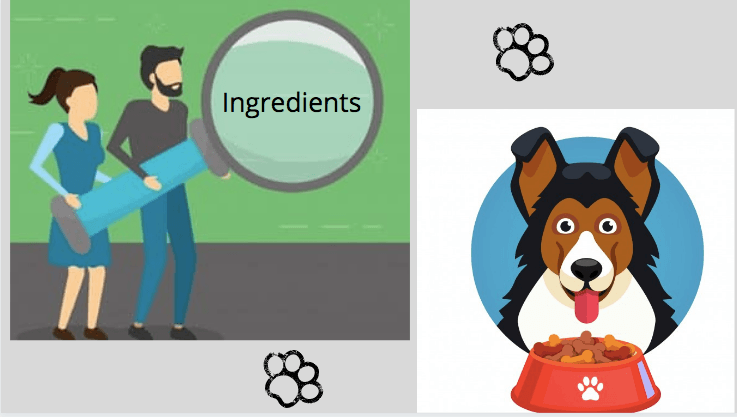
When you consider how quickly our pups grow, the best dry puppy food should contain a number of ingredients to help in this process. Although not inclusive, below is a number of these ingredients that you should consider when choosing the best puppy food:
- Protein – A quality protein provides a number of benefits to your growing pup, providing energy, and to build strong joints, bones, and muscles. In addition, protein provides your pup with essential amino acids that are significant to your pet’s foundation of organs, tissues, and antibodies.
- Carbohydrates – Provides your pup with a source of energy as well as a dietary fiber. This fibre is helpful in the absorption of food as well as helping in the digestive process.
- Fats – Another source of energy, fats also go a long way in keeping your pup’s skin and coat healthy as well.
- Minerals – Minerals serve a number of roles, including the normal function of your pup’s body and to regulate growth.
- Vitamins – These play a significant role in assisting and boosting the immune system, providing antioxidants, and maintaining the function of the nervous system.
6. What You Should Know About These Ingredients
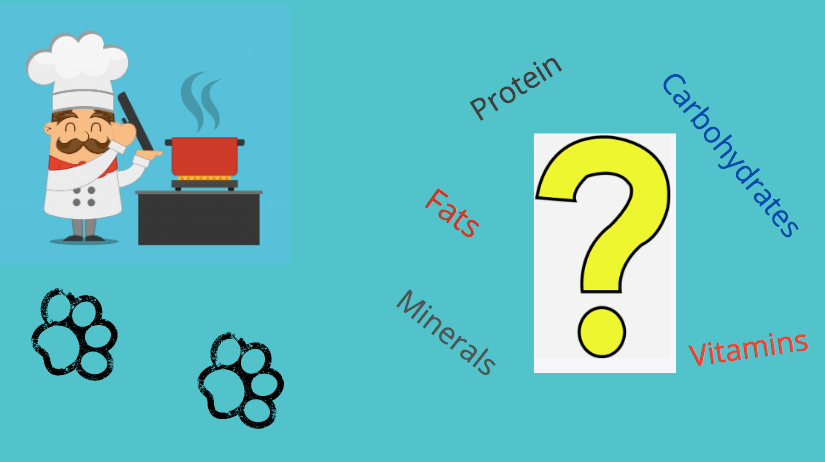
(Protein)
In my opinion, any puppy food or adult dog food for that matter, should contain a healthy source of a meat protein as the first ingredient. Such meat sources as Chicken, Turkey, Lamb, Beef, Fish, etc. should be the named source of protein.
According to Krista Williams, BSc, DVM; Robin Downing, DVM, CVPP, CCRP, DAAPM (VCA) The recommended protein range for healthy puppy growth is 22- 32% on a dry matter basis. These levels support optimal growth, so it is not recommended to exceed these protein levels.
Keep in mind that your puppy will need more protein than the adult dog you may have in the family. The reason for this is due to the rapid growth you will find in your puppy and the playful energy displayed on a daily basis.
As a general guideline, your pup’s diet should contain approximately 21 to 26 % protein.  If you are looking for a healthy, nutritional source of protein for your little companion, make sure you read the ingredient label (Dry Food). Look for a product that contains at least two animal sources of protein within the first to five ingredients. Here is an illustration below from an actual Puppy Food Dry Recipe.
If you are looking for a healthy, nutritional source of protein for your little companion, make sure you read the ingredient label (Dry Food). Look for a product that contains at least two animal sources of protein within the first to five ingredients. Here is an illustration below from an actual Puppy Food Dry Recipe.
Deboned Chicken, Chicken Meal, Brown Rice, Oatmeal, Barley, Menhaden Fish Meal
As you can see, within the first six ingredients, you will find three variations of protein including Deboned Chicken, Chicken Meal and Menhadden Fish Meal.
(Carbohydrates)
When it comes to carbohydrates found in dog food, you will get two sides of an argument. Many individuals, including animal nutritionists, would argue that carbohydrates play a significant role in your pup’s well being. Others would argue that our dog’s ancestors (Wolves) survived for years with limited carbohydrates (roughly 14%) in their diets.
Before we go any further, let’s take a look at what carbohydrates (macronutrients) actually are and what they do. According to PETMD, “Dog foods meant for maintenance have anywhere between 30 to 70 percent carbohydrates. Dogs are omnivores, meaning they can use carbohydrates as a source of energy. The ability to use both proteins and carbohydrates as energy allows healthy dogs to function well on the majority of commercial diets. Common cereal grains like wheat, corn, rice, barley and oats give the kibbles structure and texture. Once processed, these ingredients are easy for dogs to digest.”
To briefly summarize what you should know regarding carbohydrates in puppy food, I have outlined these below. As I mentioned at the beginning of this section, there are differing opinions when it comes to this specific ingredient. Here are the main points:
- It provides energy
- Carbohydrates are not essential to sustain life in dogs
- Common types of carbohydrates in dog food include Brown Rice, Whole Oats, Whole Wheat, Whole Corn and Potato to name a few
- Too much of carbohydrates may lead to obesity
(Fats)
Just like us, when you hear the word ‘fat’ used in puppy food, your first response may be one of “no way is my puppy eating this.” Well, before you put down that bag, take a look at one expert in the nutritional side of things has to say.
 Dr. Cailin R. Heinze, a Board Certified Veterinary Nutritioinist, states the following regarding fat in dog food. “Fat is an important nutrient for your pet – it provides energy, insulation, cushioning, and has many other important roles in animals’ bodies. Both too little and too much fat can cause health issues in dogs and cats.”
Dr. Cailin R. Heinze, a Board Certified Veterinary Nutritioinist, states the following regarding fat in dog food. “Fat is an important nutrient for your pet – it provides energy, insulation, cushioning, and has many other important roles in animals’ bodies. Both too little and too much fat can cause health issues in dogs and cats.”
As you can see, fat plays a vital role in the overall development of your pup. Our dogs require a a balance of ‘fatty acids’ that can only be provided through their diet. If you are looking for some ‘fats’ that are commonly used in puppy food, here are a few of those:
- Fish Oil
- Pork or Chicken Fat
- Vegetable Oil
The fats found in puppy recipes will come from both the vegetable and animal sources. Omega-3 and Omega-6 fatty acids also play an important role in your pup’s health, absorbing and transporting fat-soluble vitamins including Vitamins A, D, E, and K. In addition, fats actually improve the taste of your puppy’s food. Moderation is the key here.
(Minerals)
Your pup will also require a certain amount of minerals within his diet for a number of reasons. Minerals are in a class of nutrients, and are needed to ensure your pup grows up healthy and strong. Here are a number of health benefits that minerals provide:
- Formation of healthy bones and cartilages
- Transportation of oxygen in the bloodstream
- Maintains your dog’s normal activities
- Boosts the immune system
- Helps with keeping hair and skin healthy
To illustrate the importance of minerals in your pup’s diet, NomNom has constructed a detailed list of these minerals and the benefits associated with each. Here’s a look:
- Calcium & Phosphorus
- Found in: Tofu, green beans, broccoli, and cauliflower (calcium). Meats, eggs & fish (phosphorus)
- Benefits: Blood coagulation, muscle growth and nervous system function in dogs
- Caution! Too much can cause fractures, bone deformities, & weakness. Too little can lead to abnormal growth & development
- Potassium, Sodium & Chloride
- Found in: Fruits, vegetables, and grains.
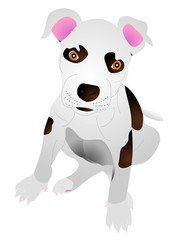
- Benefits: Control the balance inside and outside the body’s cells. Assists in the function of muscles, nervous system & heart. Chloride helps in the production of stomach acid.
- Caution! Imbalances can lead to weakness, hair loss, dehydration and in some instances, paralysis. A deficiency in potassium means abnormal heartbeat
- Found in: Fruits, vegetables, and grains.
- Magnesium
- Found in: Nuts, whole grains, and leafy vegetables.
- Benefits: Aids in muscle and bone development. Helps with calcium absorption
- Caution! Magnesium, calcium & phosphorus are joined in pet health harmony. One cannot function without the other.
- Sulfur
- Found in: Eggs, fish, meat & molasses.
- Benefits: Beautiful hair, nails & skin.
- Iron
- Found in: Red meats, fish, poultry, eggs, and legumes.
- Benefits: Oxygenating red blood cells, strengthening the immune system & production of energy.
- Zinc
- Found in: Eggs, pork, liver, brewer’s yeast, and lamb meat.
- Benefits: Boosts immune systems, aids in healthy hair and skin. Protein digestion.
- Iodine
- Found in: Seafood, dairy, and kelp.
- Benefits: Production of thyroid hormone for metabolism.
- Selenium
- Found in: Seafood, meat, brown rice, and vegetables.
- Benefits: Paired with vitamin E to promote the immune system.
- Copper
- Found in: Seafood, whole grains, seeds, and legumes.
- Benefits: Bone growth & promotes the use of iron.
(Vitamins)
In a nutshell, vitamins are needed to assist and help in the maintenance and growth in our pup’s bodies. The one thing that you must consider is the life cycle of our four-legged companions. Puppies and adult dogs require a different amount of vitamins in their diets and dog food companies make products available with this in mind.
Let’s take a look at a number of these vitamins and where they can be found in your pup’s food. This will give you a better idea in what to look for on the ingredient list when choosing the best dry puppy food diet for your pup. This chart is provided by TheBark:
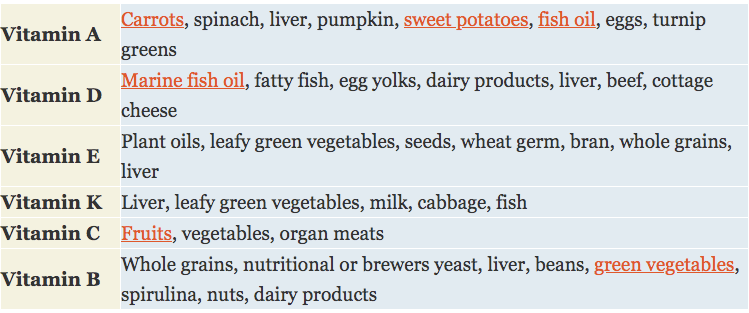
Ever took the time to read the dog food ingredient list on the back of most puppy food products? Obviously, there are a number of other ingredients that you will find within these products. In my opinion, the ones mentioned above are the ones to take careful notice of.
Puppy food products that contain these ingredients and are proportionally balanced, will give your pup a great chance with optimal growth and a long, healthy and energetic life.
5. How Do You Know Which Dry Puppy Food Is The Best Choice?

To answer this question, you must first consider the needs of your own puppy. Breed, health issues, food allergies, etc. As I mentioned earlier, there are a number of dog food companies that produce recipes to meet the needs of our pups.
Your puppy will grow up quickly, ( too quickly, in my opinion ) and will require a diet that meets her nutritional needs. With that said, here are a number of items you should consider when choosing the best puppy food.
- Find a reputable company – There are literally hundreds of pet food companies on the market today, so choosing one that is reputable only takes a bit of research. Companies that use the best of ingredients, consult with animal nutritionists, and test their products before shipping them off are ones that I would consider.
- Consider the size/breed of your puppy – As mentioned earlier, the size and breed of your pup will require different nutritional needs to help in a healthy growing process. This is especially important when it comes to calories, as too many or too much can lead to health issues as your puppy grows into adulthood.
- Ingredients – Look for the best dry puppy food formulas that contain ‘natural’ ingredients and ones that do not contain such things as artificial coloring, flavors, unhealthy fillers, and chemicals like BHA, BHT, and Ethoxyquin to name a few. Look for recipes that contain whole meats like (Chicken, Turkey, Lamb, Fish, etc.) and stay away from anything that mentions ‘Meat Meal’ in the ingredient label. Vegetables, fruits, whole grains and healthy fats are always a healthy source in recipes.
- AAFCO Statement – The Association of American Feed Control Officials (AAFCO) is an association and voluntary membership of local, state and federal agencies. Here is the list of their guidelines and tasks:
1.) A process for defining ingredients used in animal feed and pet food.
2.) A forum where state agencies, federal agencies, and industry develop uniform language that states may adopt or reference in laws.
3.) Two meetings per year that include specialized trainings for members and industry.
In a nutshell, dog food companies must deliver on this premise, “Any dog food manufacturer that wants to make the claim that their food is ‘nutritionally complete’ must meet AAFCO’s nutritional requirements, feeding trial requirements, or produce a food similar to one which has met these requirements.
4. Best Dry Puppy Food For Your Large Breed
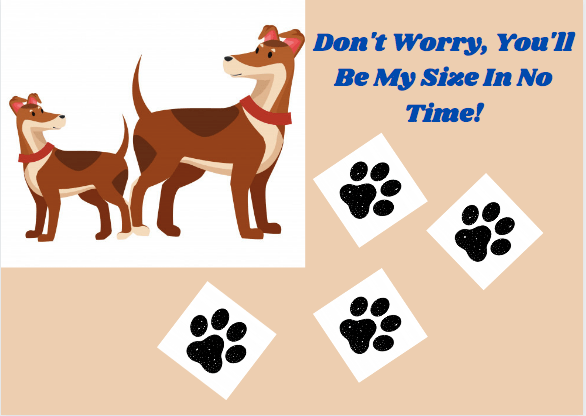
Your big or large breed pup has different nutritional needs than the small breed puppy. AAFCO defines a large breed dog that will reach 70 pounds or more when it is fully grown. Pups that will weigh over 100 pounds when fully grown are considered to be giant-breeds.
Large breed puppies will come to maturity somewhere between 18 and 24 months. In order to help these large breed puppies to grow in a healthy manner in reaching adulthood, feeding her a diet that is formulated for large breeds is essential.
As a large breed puppy owner, here are a few things to consider when choosing the best puppy food for labs and other large breeds. Keep in mind that these pups need to mature and grow at a proper rate. These large pups who grow too quickly, are inclined to put unwanted stress on their joints and bones that may cause issues as your pup grows to maturity.
To assist your large pup with these orthopedic issues, look for a large breed puppy food that has the nutrients to help support their bones and joints. In addition, look for a formula that is complete and balanced and promotes a natural, steady growth.
The appropriate balance of calcium (too much may cause hip disease and/or bone damage) and energy are two important components of a healthy diet for large breed pups. Finding one, will go a long way in helping your pup from these skeletal issues down the road.
Finally, resist the urge of overfeeding your large breed pup! This also includes treats! These pups have a larger stomach than the smaller pups, and would probably eat all day if permitted to do so. Excess weight on their bones and joints is a recipe for unwanted health issues. Talking with your vet and developing a diet plan is always a good choice.
(Here are a few Large Breed Puppy Recipes that I would recommend:)
- Hill’s Science Diet Large Breed Puppy Chicken Meal & Oat
- Wellness Complete Health Large Breed Puppy Deboned Chicken & Brown Rice
- Blue Buffalo Life Protection Large Breed Chicken & Brown Rice
3. Best Puppy Food For Small Breeds

The small breed puppy also needs a specific diet to meet her nutritional needs that is different from the needs of the large breed pup. The small puppy will have a higher rate of metabolism which may require a feeding (small portions) up to 3 or 4 times a day. This will help in the management of low blood sugar and/or hypoglycemia. They will burn energy!
Also keep in mind that the small breed pup will require a kibble that is appropriate for their small mouths. There a number of great choices (see below) on the market today that will meet this need. (See The Products Below)
As in puppy food for large breeds, always check the ingredient list to be sure your small pup is receiving a balanced and nutritional diet. Stay away from products that are mostly comprised of such things as artificial preservatives, coloring, by-products and unhealthy fillers.
These little guys have a lot of energy and will burn up more calories than the majority of large breed pups. Pay close attention to their level of activity and don’t be afraid to consult your veterinarian should you feel that your little guy is not maturing in a way you feel appropriate.
For your convenience, I have a listed a number of small breed formulas below that I believe are a great choice for the best dry puppy food. Take a look for yourself and see which formula offers your small pup the best nutritional value. Here you go:
- Wellness Small Breed Puppy Complete Health Turkey, Oatmeal & Salmon Meal
- Blue Buffalo Life Protection Small Breed Puppy Chicken & Oatmeal
- Diamond Naturals Small Breed Puppy Chicken & Rice
2. Puppy Feeding Chart

Okay, by now you hopefully have a better idea of what to look for in your search for the best puppy food. Perhaps one of the products that were mentioned above is one that you feel comfortable with.
You should now know that small and medium breed pups will grow up quickly. Small breed pups for the most part, will stop growing between the 6 and 8 month timeline. Middle breeds may take a bit longer, reaching maturity at approximately one year.Large and giant-breed pups will take a few more months to reach maturity.
If so, your next step would be the feeding process as well. When is the best time to feed your puppy? How many times should you feed your pup a day? Is there a difference between the small breed puppy and the large breed in terms of feeding?
Let’s dig a little deeper in answering these questions. Below I have inserted some data that may go a long way in helping you with these questions. Let’s take a look at this information below provided by AKC to get you and your pup off to a good start.
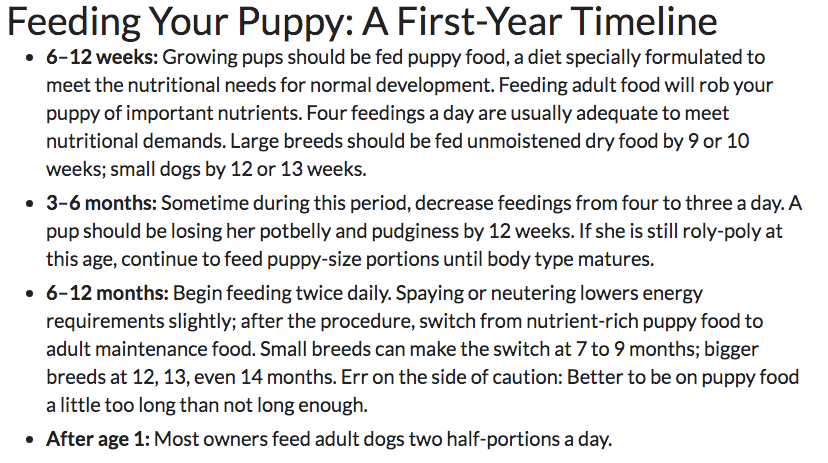
1. Which Form Is Better For My Pup, Dry Or Wet?
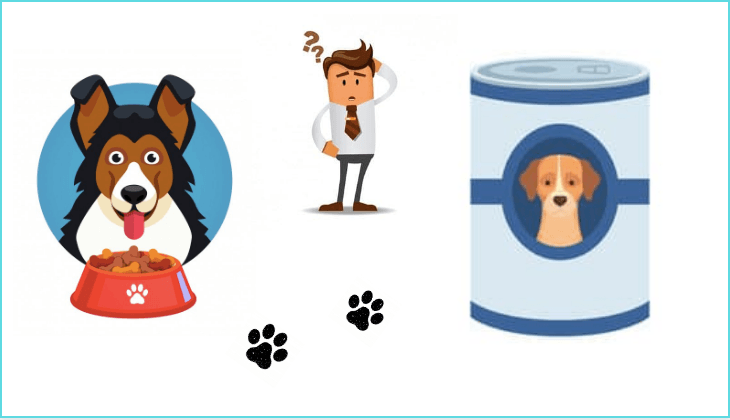
In my opinion, and the majority of veterinarians and pet food nutritionists, the dry form of puppy food would be my first choice. Obviously, this article is based on the dry form, but there are benefits of both. Let’s take a look at a number of benefits of both which you will see below:
Dry
- Number of dog food companies offer a complete and balanced diet in the dry form
- It is simply more economical than that of canned forms of puppy food
- Convenience – Feedings may be left out in your pup’s bowl for hours without spoiling
- Oral-hygiene – Many dog food experts believe the biting and chewing of the kibble is good for your pup’s teeth and gums
Wet
- The wet form provides an enticing smell and taste to your pup
- Wet forms of puppy food contain a greater source of water in its ingredients that may be appropriate for the pup who doesn’t consume enough daily water
- Wet food products typically provide your pup with more protein and fats
Whether you choose the best puppy food dry or the best puppy food wet, the emphasis should always be on a quality, nutritional product. Which form of puppy food you choose is a choice that you should make, as all puppies are unique creatures and may have specific needs.
Consulting with your local vet and/or pet nutritionists is always something to consider. The information you have been provided throughout this article will hopefully make your decision an easier one.
When you buy something from this website, I may receive an affiliate commission from Chewy.com. These are my opinions and are not representative of the companies that create these products. My reviews are based on my own personal experiences and research. I never create false reviews in order to receive a commission. My intention is to provide you with information so you can make decisions to which products may best suit your and your pet needs.
Disclaimer
For those unfamiliar with dog food grain-free recipes, there has and is a controversy taking place as I write this article. The FDA has made public that it has launched an investigation between a possible connection between the grain-free diet and heart disease within dogs. For further information, the American Kennel Club has provided further details. Click here.
Disclaimer
The purpose of this site and articles are intended to provide a source of entertainment and information. As a dog owner and dog lover myself, I enjoy researching dog food products on the market to provide you with helpful insights. I am not a veterinarian nor an animal nutritionist, just a dog owner who wants to provide a healthy lifestyle to their pet. I use my research to express an opinion which may or may not be one you agree with.
eathealthydoggy.com assumes no responsibility or liability for the use or misuse of what’s written on this site. You should always consult with a veterinarian if you should have questions regarding your dog’s diet or overall health.
0 Comments